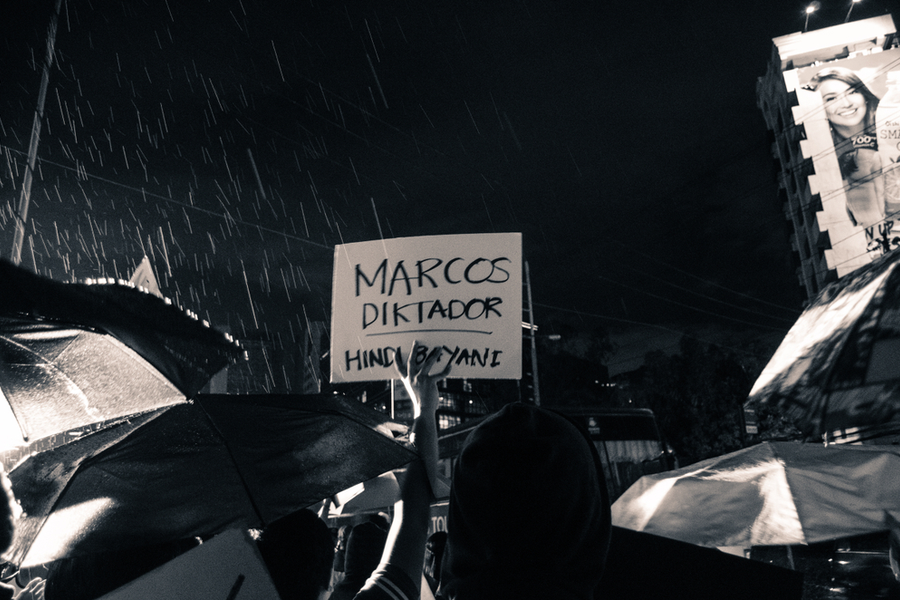Martial Law, Marcos, and what the truth demands out of us

May 2022 is important to me for two reasons. It of course marks the election, arguably the most momentous in decades, but it also will mark another, more intimate milestone: the end of my first year of being a high school teacher.
Teaching in the past year, even in a digital set-up, has been accompanied by a kaleidoscope of experiences—the peculiar aura of Google Meet classrooms, work meetings in my boxer shorts, learning how to artfully conceal the mess of my room through the right webcam angle, and honorary citizenship in the “Czech” (Check) Republic courtesy of endless piles of drafts and submissions (that I of course can only blame myself for assigning) to name just a few.
Just like them, back when I graduated from high school in 2016 there was a crystal-clear sentiment that weighed stone-heavy in my heart: this is not how it is supposed to be.
More than anything, though, teaching has engraved in me the hopes, fears, and aspirations of my students. They are all in Grade 12, poised to graduate, the world wide open ahead of them—or at least this is what they are bravely trying to cling to. None of them have been spared by this pandemic; not only have so many of them had to deal with COVID themselves or through tending to their loved ones, but there is also a general sense of gloom that students and teachers alike constantly struggle to overcome—what else would be appropriate, given the shambolic pandemic response that has constantly failed to shows signs of either brains or heart?

I cannot claim to fully understand what my students are feeling, but I think I understand enough to see a little of myself in their situation. Just like them, back when I graduated from high school in 2016 there was a crystal-clear sentiment that weighed stone-heavy in my heart: this is not how it is supposed to be.
Back in 2016, a fresh arrival in college, Ferdinand Marcos’s burial at the Libingan ng mga Bayani swept the ground out from under my feet. A murderous, thieving dictator being buried as a hero? In the sudden absence of reason, the only logic I could grasp was the current driving me and many other students out onto Katipunan to proclaim with an indignation we were only beginning to really understand and make sense of: “MARCOS, DIKTADOR, HINDI BAYANI!”.
I remember, despite everything, a sort of assurance creeping up in me at the time. The protests were huge—surely the outpouring of remembrance and rage would mean something. Maybe it still will; I have since come to learn that these matters are rarely ever straight lines to progress. The dictator’s son, after all—is currently the most popular presidential candidate by a huge margin, and my students are as baffled by this as I was by his father’s burial.
He has not gone unchallenged, of course. Even as I write this there are multiple petitions pending at COMELEC challenging his candidacy’s legitimacy—all of which, regardless of the outcomes, will inevitably be raised to the Supreme Court. Amid the furor over these developments, the truly maddening thing is that the illegitimacy of Marcos’s candidacy has to be debated at all. The sins of the father are not the son’s, but the facts are clearly laid out to anyone who cares about them.
It is not enough to know the truth. More important than just knowing the truth is being able to recognize what it demands from us, and acting on it.
Ultimately, however, this is far bigger than Marcos Jr.—regardless of whether he wins or loses. What I tell my students is this: it is not enough to know the truth. More important than just knowing the truth is being able to recognize what it demands from us, and acting on it.
In our current situation, this does not just mean fact-checking trolls, or even just ensuring Marcos Jr. fails his bid for the presidency—it means recognizing that the continued prominence of the Marcoses in our public life shows us that despite EDSA, the elite rule that the victims of Martial Law martyred themselves to fight has hardly changed.
The rich and powerful, feudal lords and servants of capital, still hold overwhelming control over our institutions, stunting the capacity of ordinary Filipinos to realize our full agency, and leaving us vulnerable to the promises of false messiahs who recognize our pain only for the purpose of being able to maximize exploiting it. Within this backdrop, the Marcos revival makes perfect sense; presidents with different family surnames have come and gone, but the same unwillingness to challenge fundamental systemic ills has remained constant.

Scene from student-led protests in Quezon City against the surprise burial of dictator Ferdinand Marcos at the Libingan ng mga Bayani on Nov. 2016.
If this is the truth, then the task we are left with is to organize and struggle for development that is inclusive and steered by the interests of the masses, not the power elite—and this is work that demands our participation in and outside of elections. It means organizing with sectors, fighting for the right of ordinary Filipinos to participate in the planning and execution of policies, and ensuring politicians from the barangay-level onwards are truly accountable to the people they owe their service; it means doing whatever ought to be done to ensure that Filipinos have democratic control over our own lives, and that the massive resources and machinery of government are used to help communities flourish while selfish, atomized interests wither.
This is what I hope my students take to heart even as I am learning to do the same alongside them: despite all that is currently up in the air, it is a certainty that the struggle for genuine democracy will not, and should not, end in May 2022.
PhilSTAR L!fe is open for contributions. We welcome your thoughts on issues that affect your community. Email us at team@philstarlife


